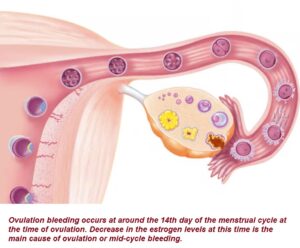Pregnancy is an exciting time, but it can also bring unexpected challenges.
Recently, I had a consultation with a young woman in early pregnancy who was experiencing abdominal pain.
Her concerns are common among expectant mothers, and I’d like to share some insights to help others who may be facing similar issues.
Patient’s Complaint:
The patient was 8 weeks pregnant. But she had been having pains on either side of the lower abdomen for the last 1-2 weeks. The pain was not constant. They were more like cramps, coming and going from time to time. The cramps also increased when she moved, especially when she stood up from a sitting or lying down position.
There was no bleeding or spotting .
She was however concerned that the abdominal pain could be a sign of a miscarriage.
On examination, I found that:
- The uterus was normal in size and position
- No vaginal bleeding was present
- The patient reported frequent urination, typical in early pregnancy
- Constipation was a significant issue, with the patient unable to pass stools for 1-2 days
Diagnostic Steps
To ensure the health of the pregnancy, I recommended an ultrasound. The results were reassuring:
- The pregnancy was perfectly normal
- No bleeding was detected
- No subchorionic hematoma was present
- Overall, it was a healthy pregnancy
- But, there was plenty of gas in the intestines
Diagnosis and Treatment
Based on the examination and ultrasound results, I concluded that the pain was most likely due to intestinal cramps caused by constipation. To address this, I prescribed laxatives to clear her intestines of stools and gases. She was also asked to drink plenty of fluids and increase fiber in her diet – both of which help prevent constipation.
Understanding Abdominal Pain in Early Pregnancy
Abdominal pain during early pregnancy is quite common and can have various causes.
1. Intestinal Cramps: Often mistaken for uterine cramps, these can be caused by gas buildup and constipation.
2. Normal Uterine Cramps: As the uterus grows, the enlarging uterus pulls on surrounding ligaments, causing mild pain.
3. Miscarriage: While unlikely in this case due to the absence of vaginal bleeding, it is always a concern that needs to be ruled out.
What Causes Abdominal Pain at 8 Weeks Pregnant?
In the first trimester, abdominal pain can be caused by several factors:
1. Uterine Growth: Your uterus is expanding to accommodate the growing fetus.
2. Ligament Stretching: The ligaments supporting your uterus are stretching, causing discomfort.
3. Digestive Issues: Hormonal changes can lead to constipation and gas, causing cramping.
4. Urinary Tract Infections (UTIs): UTIs are quite common throughout pregnancy, including in the first trimester. Cramps from the bladder can be mistaken for cramps from the uterus.
It’s important to note that mild cramping is often normal during this stage of pregnancy. However, severe or persistent pain should always be evaluated by your doctor.
Is Abdominal Pain Normal in Early Pregnancy?
Yes, some degree of abdominal pain or discomfort is normal in early pregnancy. As your body adapts to the growing fetus, you may experience:
– Mild cramping
– Stretching sensations
– Occasional sharp pains
These symptoms are usually harmless and related to the normal changes occurring in your body. However, it’s crucial to monitor your symptoms and report any concerns to your healthcare provider. For more information on what to expect, read more about symptoms of pregnancy.
Key Takeaways for Expectant Mothers
- Don’t Panic: Abdominal pain in early pregnancy is often due to benign causes and is quite common.
- Common Causes: Intestinal cramps, normal uterine stretching, and constipation are frequent culprits.
- Monitor Your Symptoms: Keep track of the intensity, duration, and frequency of your pain.
- Stay Hydrated and Eat Fiber-Rich Foods: This can help prevent constipation and reduce gas-related discomfort. Ask your doctor for laxatives , if necessary.
- Get Regular Check-ups: Regular prenatal visits can help catch any potential issues early.
- Seek Medical Advice: Always consult your healthcare provider if you’re concerned about pregnancy symptoms.
- Trust Your Instincts: If something feels wrong, don’t hesitate to contact your doctor.
- Ultrasound Importance: An ultrasound can provide valuable reassurance about the health of your pregnancy.
- Managing Constipation: Proper hydration, a fiber-rich diet, and safe laxatives (as prescribed) can help alleviate this common pregnancy issue.
Every pregnancy is unique, and it’s crucial to have a reliable support system. If you’re experiencing symptoms that are unusual for you or feel concerned about your pregnancy, you can benefit from seeking advice through an online gynecologist consultation.
If you’re experiencing pain and unsure what it could mean, it might be helpful to review some insightful health articles on abdominal pain during pregnancy.
If you’re experiencing similar symptoms or have concerns, consult a gynecologist online to get personalized advice and ensure a healthy pregnancy journey.



